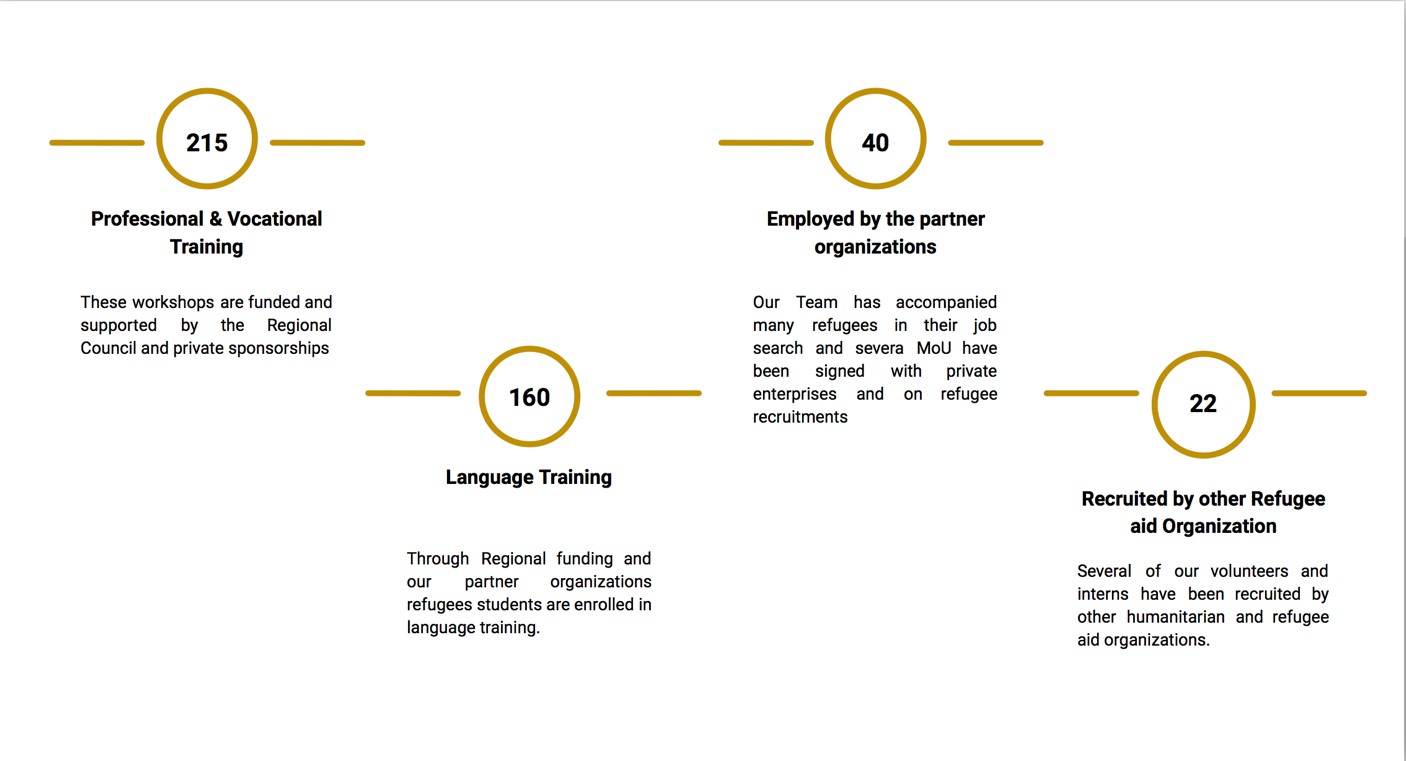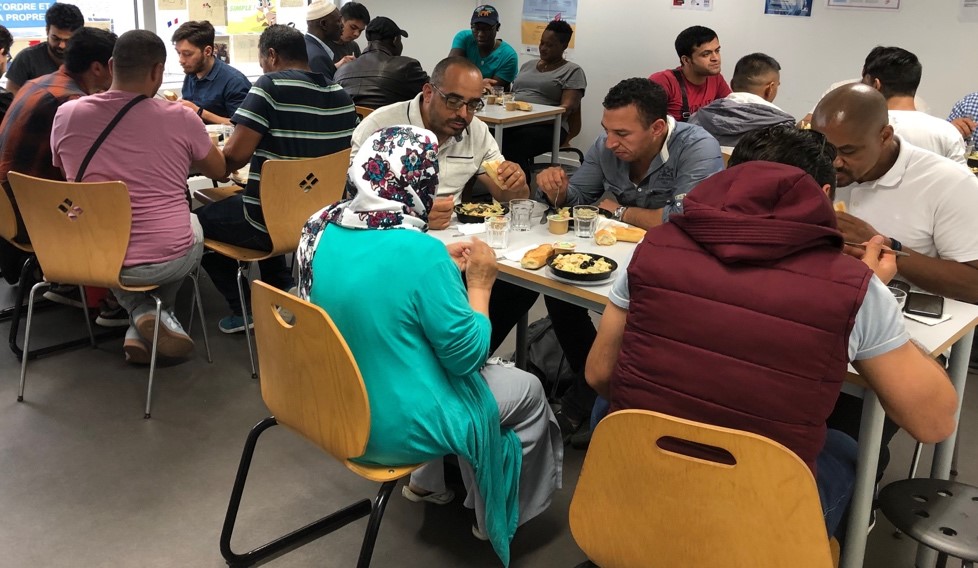Workshop: Refugees accessing employment opportunities through private sector partnership
Workshop: Refugees accessing employment opportunities through private sector partnership

Some of the beneficiaries pose for a group picture
A Good Practice demonstrating how refugees can access employment opportunities in France.
Contact details
Submitted by: Najib Obaid Babakerkhail – Founder & Director
Email: [email protected]
Website: www.frenchrefugeecouncil.com
Social: https://www.facebook.com/frenchrefugeecouncil/
Introduction to the project
Location
France
Duration
2017 - present
Description
Many refugees have already obtained professional or vocational qualification in their country of origin. The French Refugee Council guides them in the administrative procedures to obtain validation of these previous qualifications and work experiences in order to start a new career in their host country. FRC helps refugees to prepare their files and applications.
Through its regular workshops and trainings, the FRC aims to give adult refugees and immigrants better opportunities to becoming a productive part of the host society. These workshops focus on an overview of the French job market and workplace culture, employment opportunities, language trainings and one-on-one support to identify career goals and job strategies in France.
The French Refugee Council has signed MoUs with several big institutions throughout the country with the promise to recruit refugees who are presented by us after completing a training program.
Project aims
- Helping refugees get employment opportunities with personalized training and through matching the requirements of the employer with refugees’ skills and competences.
Resources used
Person time and financial resources.
Main activities of the Good Practice
In addition to offering workshops on accessing employment opportunities for refugees in the host country, the French Refugee Council (FRC) also connects refugees with employment service providers and gives them the right information regarding job opportunities in France. FRC makes available to refugees in the program all employment related information such as language trainings, resume writing, etc.
The workshops are conducted by professional employment trainers and the training modules are designed based on regular meetings that are held by different recruiting agencies. Bilateral meetings are held with different companies and commercial brands throughout the country to identify these employers’ requirements and entry points for employment of refugees.
Partners
Various private sector companies.
How challenges were overcome
A main challenge is that a majority of refugees do not have any professional or academic qualifications and the main obstacle to their integration into the job market is the language barrier: many refugees cannot be enrolled into professional trainings because they do not speak the host country language. Acquiring the working proficiency level in French delays the project
FRC integrated language trainings in the same module set for the professional trainings and employers are being encouraged to offer French language classes on the job for the refugees recruited
Results of the Good Practice
The workshop on accessing employment opportunities for refugees through private sector partnership helps refugees to:
- Get the necessary information about the job market in the host country
- Get personalized support for the validation of their diplomas obtained outside the host country which match the job requirements.
- Get a two week training based on the clients demands and requirements depending on the sector of recruitment.
- Get a two week internship opportunity and on job training for refugees without prior professional work experience.
- Network with potential employers through employment fairs and galas.
Next steps
With the help of the Regional Council and State agencies, FRC aims to formalize these training programs into a customized and needs-based training so that other refugees could get jobs soon after completing their training program.


